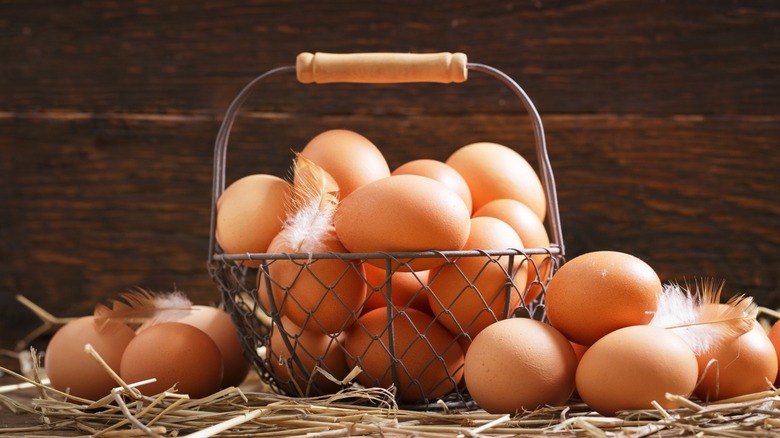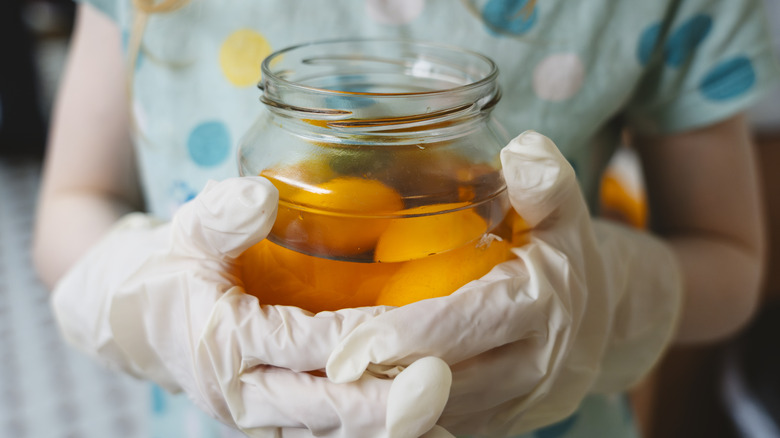The Advice To Keep In Mind If You Decide To Water-Glass Eggs
Imagine having a stash of fresh eggs ready to go whenever you need them, thanks to a simple, old-school trick called water glassing. This method works best with farm-fresh eggs because they come with a natural outer seal that keeps out air and bacteria — think of it as nature's way of preserving your eggs. Store-bought eggs, unfortunately, don't work as well since they lose this seal during washing. By using eggs with their natural protection intact, you can keep them fresh longer and make the most of your egg supply without waste. It's a handy, practical solution for easy and effective egg preservation.
In the past, people used sodium silicate for water glassing. These days, pickling lime, also known as calcium hydroxide, is the go-to choice because it's easier to use and get a hold of. To get started, mix the pickling lime with water — about 1 ounce of pickling lime per quart of water. Place the unwashed but clean eggs — free of any dirt or chicken residue — into the solution, making sure they're fully covered. Store the container in a cool, dark place like a pantry ensuring it is airtight. This method is similar to the Irish technique that uses butter to preserve eggs. Both methods create a protective barrier, but while water glassing uses a liquid solution, the Irish method uses a solid coating. Eggs preserved this way can stay good for a year to 18 months.
How to use and care for water-glassed eggs
When you're ready to enjoy your water-glass eggs, give them a quick rinse under cool water to remove any residue from the pickling lime — think of it as a little spa treatment for them. It's important to know that these eggs might have a slightly different texture from fresh ones. The yolks can become runnier, and the whites may turn more gelatinous or less firm over time. This means they're fantastic for baking, scrambling, or hard-boiling, where a change in texture won't affect your dish. However, if you're aiming for a perfectly poached egg with a pristine yolk, these might not be your go-to choice, as the altered texture can make poaching less ideal.
Finally, pickling lime is alkaline, so handle it carefully and wash your hands well after use. You'll need a clean airtight glass jar or ceramic crock, and a scale to measure the pickling lime. Keep your containers labeled with storage dates to ensure your eggs stay fresh. Check your eggs regularly; if any have cracked or smell off, throw them out to keep the rest safe. Always inspect each egg before using it and do the "float test" — eggs that float are no longer good. If you don't have chickens, consider using an egg delivery service for fresh, bloom-coated eggs delivered straight from the farm. With these basics, you'll be set for successful egg preservation.

